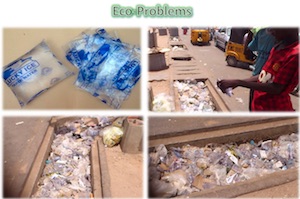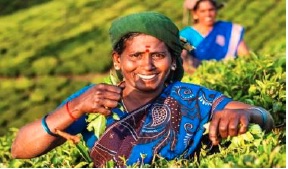| |
|
 |
First sacred cities investment meeting July 24-25
July 27, 2017:
 |
 |
 |
Cebu and Naga in the Philippines want to replace highly polluting tricycle vehicles with electrical vehicles |
This week in London, representatives of faith-based sacred city proposals totaling nearly a billion dollars discussed how their initiatives could be funded through the investment community’s growing commitment to ethical or “impact” investment.
The event which attracted considerable interest from both the faith world and the secular ethical investment world, was organised by the Alliance of Religions and Conservation (ARC), and co-hosted by R20 at The Wesley, the UK Methodists’ first eco-hotel in London.
According to R20 Executive Director, Christophe Nuttall: “The investment community, which has already made great strides in ethical investment, is starting to realize that religions are producing structured investable projects in this area.”
The aim of the London meeting was to set up a structure for faiths to access impact investments. In the short term this could help finance some or all of the attending projects (see below).
 |
 |
 |
Kano in Nigeria is planning major infrastructure and drinking water distribution businesses |
The United Nations' ethical investment partner BlueOrchard, founded in Geneva in 2001 and manager of the first commercial microfinance fund ever is proposing to build such a dedicated fund for sacred cities, together with R20 and with help from ARC.
In the medium term this could finance up to 200 sustainable projects in different cities and places. And by 2030 this could grow to include 7,000 cities, some of which will be considered sacred, but others which will benefit from having local faith groups consult in investment plans.
While there is an increased interest in ethical, or “impact” investment from investors, there is a real shortage of sustainable projects for sustainable funds to invest in around the world.
The CEO of BlueOrchard, Dr. Patrick Scheurle, also attended the event and gave his perspective from the impact investment world.
R20 and BlueOrchard have developed a unique value chain which, on the one hand, identifies and structures a portfolio of low-carbon and climate-resilient infrastructure projects up to bankability, and on the other hand, helps invest in these projects thanks to a de-risking blended finance mechanism with philanthropic, subsidies, equity and loans from both public and private banks.
 |
 |
 |
BlueOrchard was founded in 2001 and manages the first commercial microfinance fund ever. |
R20, BlueOrchard, ARC and many of the aforementioned projects will also be taking part in the Faith in Finance meeting on October 29th in Zug, Switzerland. projectsac0a.html?projectID=674
Sacred cities and places
- Cebu and Naga (Philippines, Catholic, wanting to replace thousands of highly polluting tricycle vehicles with electrical vehicles as the major form of transport to key pilgrimage sites)
- Djerba (Tunisia, Muslim and Jewish business plans developing infrastructure for pilgrim/tourist visits)
- Etchmiadzin (Armenia, Orthodox Christian, planning a model green pilgrimage city focusing on education, water and energy)
- Fez (Morocco, Muslim, dubbed “the Mecca of the West”, planning biogas collection for public lighting)
- Fujaira (UAE, Muslim, planning new pilgrimage/tourist facilities based on traditional Islamic architecture)
- Jiangsu, (China, Daoist, replacing old energy systems in 200 temples with high tech sustainable technologies which will be a model for other, secular, development in China)
- Kalakad & Mundanthurai (tiger reserves in India, Hindu, proposing sustainable financially viable ways to cope with the millions of pilgrims passing through)
- Kano (Nigeria, Muslim, the largest Sufi pilgrimage site in Northern Africa, hosting 3 million people at key times, planning major infrastructure and drinking water distribution programmes)
- Rameshwaram (India, Hindu, with business plans to overhaul transport, water and waste facilities for pilgrim visits to the island’s temples)
- Zanzibar City (Tanzania, Muslim/Christian planning an eco-hotel and environmental education centre on abandoned land beside the UNESCO heritage site of Stone Town)
There were also three complementary business initiatives including:
- Amaravati Buddhist Centre (London, Buddhist, which is planning an eco-village for the 21st century on its 8.35 hectares – plus woodland – site in London)
- Wesley Methodist Hotel Group (London, Methodist Christian, expanding their chain of award-winning eco-hotels to include the first ever Methodist National Park, in Kenya)
- Dartington (UK, Multi-faith centre around a 14th century historic house and substantial grounds and property, which has around 40 organisations including businesses working on technological solutions to energy needs, agriculture, waste, water, etc.)
All have produced business plans to attract investment for sustainable infrastructure enterprises.
LINKSR20
Zug Faith in Finance event
|
 |
 |
|
|
|
|
|
 |
ZUG: Faith in Finance meeting
Zug, Switzerland October 29 to November 1, 2017. More than 40 faith investment managers will discuss how to invest more positively in sustainable, ethical funds and companies. |
 |
July 23, 2017:
PRESS RELEASE: Society for Conservation Biology gives inaugural Assisi Award for faith-based conservation
The inaugural award for faith-based conservation, given by the Society for Conservation Biology, is named after the historic 1986 ARC-WWF meeting of religions and conservationists at Assisi, Italy, when these issues were discussed formally between these groups for the very first time. |
 |
July 23 2017:
PRESS RELEASE: First Sacred Cities Investment meeting, London July 24-25
Representatives of faith-based sacred city proposals totalling nearly a billion dollars will discuss how their initiatives can be funded. They will do so, in part, because Hollywood actors, Leonardo DiCaprio and Arnold Schwarzenegger, concluded that sacred cities should be models for successful sustainable development around the world. |
 |
 |
|
|

